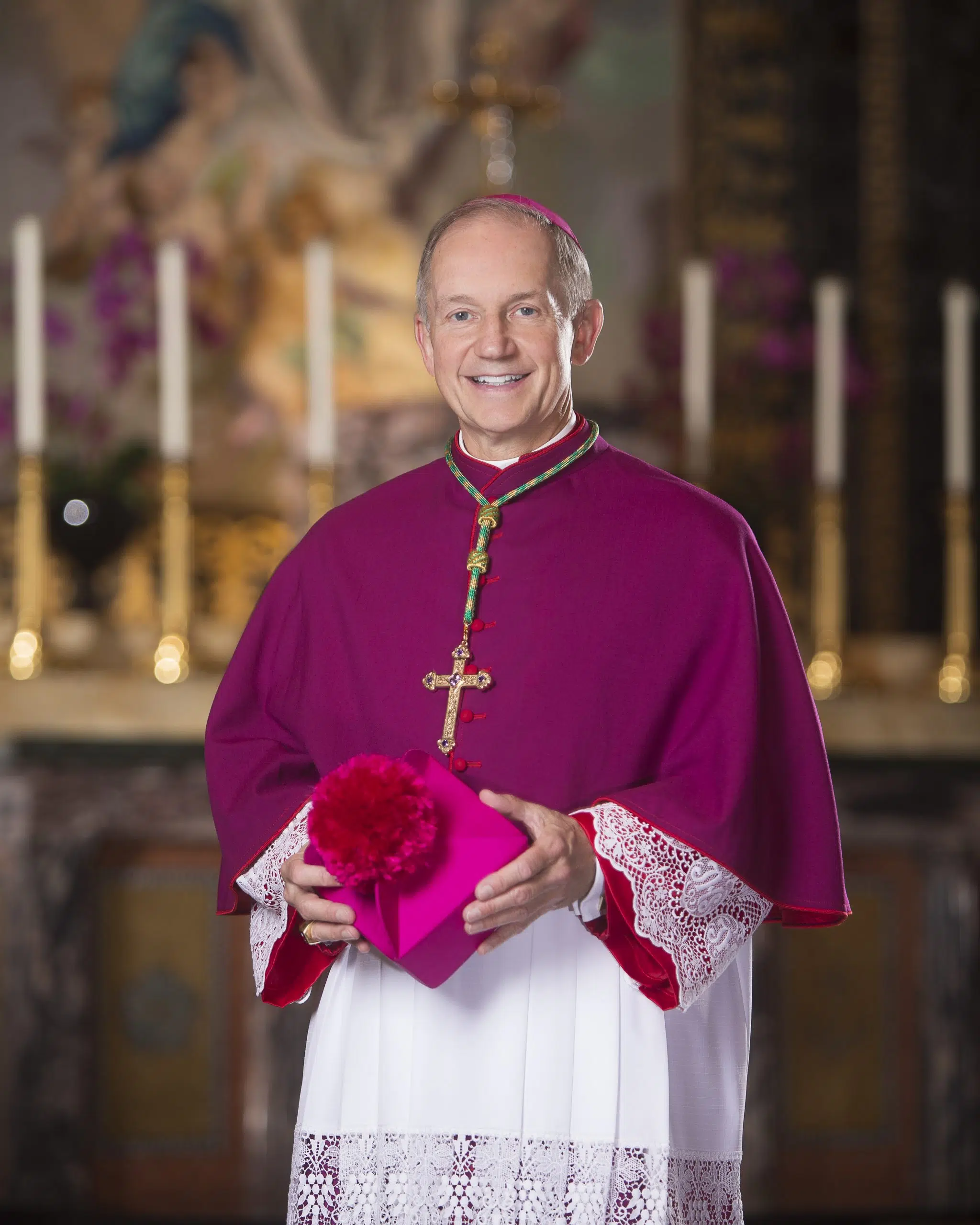For Immediate Release – March 22, 2021
Diocese of Springfield announces modified dispensation from the obligation to attend Mass
Springfield – Bishop Thomas John Paprocki of the Diocese of Springfield in Illinois announced that effective April 11, the general dispensation of the obligation to attend Sunday Mass and Holy Days of Obligation will expire and a modified dispensation will go into effect. The general dispensation has been in place since last March due to the coronavirus pandemic. Under the modified dispensation, most Catholics will be obligated to attend Mass, but others will continue to be dispensed from the obligation to attend Mass and Holy Days, including:
- Those 65 years of age or older;
- Those at risk for severe illness due to underlying medical conditions as described by the Centers for Disease Control and Prevention;
- Those who care for the sick, homebound, or infirmed;
- Women who are pregnant;
- Those who cannot be accommodated at Mass because the church was at safe-distancing capacity.
Those who are sick, have a fever, exhibit flu-like symptoms, or who have good reason to think they are asymptomatic of a contagious illness such as COVID-19, are excused from attending Mass and do not require a dispensation. In fact, they are morally obliged not to attend Mass to avoid putting others at risk.
“The date I have chosen to lift the general dispensation is Sunday, April 11, celebrated liturgically in the Church as Divine Mercy Sunday on the second Sunday of Easter, beginning with the Saturday anticipated Masses the evening before,” Bishop Paprocki said. “The Easter season is a very fitting time to renew our commitment to worship Our Lord every weekend in commemoration of His Resurrection and to pray for God’s Divine Mercy to heal the sick and bring an end to this pandemic.”
Churches in the diocese will continue safe distancing protocols and other safety measures will also remain in place such as mask wearing, pews being roped off, hand sanitizer being available in the church, the priest sanitizing his hands before distributing holy Communion, and churches being cleaned and sanitized, among other safety measures.
“It is essential to be physically present celebrating with the community of faith and receiving the real presence of our Lord into our hearts in the Eucharist,” Bishop Paprocki said. “As I said last May when we began to welcome people back to church to attend Mass, we are one body (1 Cor 12:12), and when we gather together in prayer, we know that Christ is in our midst (Matthew 18:20). Also, our faith is not a ‘virtual’ faith; our Lord Himself became incarnate and gave us the sacraments, with their physical signs and hidden but real effects. Our Lord said, ‘Amen, amen, I say to you, unless you eat the flesh of the Son of Man and drink his blood, you do not have life within you. Whoever eats my flesh and drinks my blood has eternal life, and I will raise him on the last day’ (John 6:53-54). Our faith is a tangible, physical, and communal reality. We simply cannot properly practice our faith apart from one another and separated from the physical realities of the sacraments (Hebrews 10:25).”
For more information, Catholics can visit www.dio.org/backtomass.




